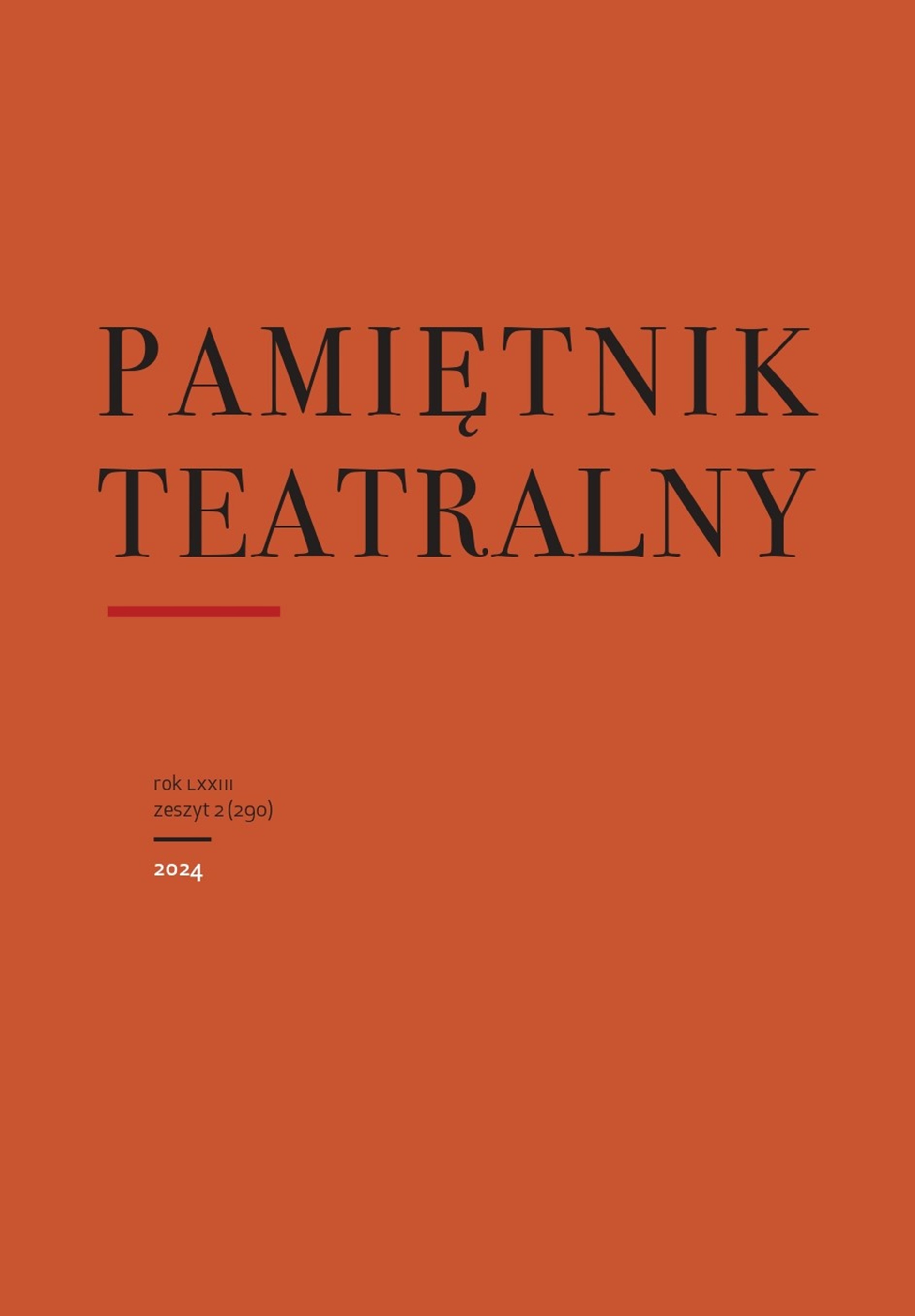Między traumą
a resentymentem
O pamięci rabacji galicyjskiej
i przemocy pańszczyźnianej
w dramatach ludowych drugiej połowy XIX wieku
Between Trauma and Resentment: Towards Research on the Galician Peasant Upris- ing and Serfdom Violence in Folk Dramas of the Second Half of the 19th Century
Author(s): Agata KoprowiczSubject(s): Theatre, Dance, Performing Arts, Social history, Sociology of Art, History of Art
Published by: Instytut Sztuki Polskiej Akademii Nauk
Keywords: folk drama; serfdom; Galician Peasant Uprising; Władysław Ludwik Anczyc; Jan Kanty Galasiewicz; memory;
Summary/Abstract: This article discusses the representation of the (absent) memory of the peasant revolution of 1846 and serfdom-related violence in folk drama from the second half of the 19th century. Theatre is understood here as a vehicle of class memory, in particular of the memory of landed gentry and peasants. Two works by two most popular authors of folk drama in this period are analyzed: Chłopi arystokraci (Aristocratic peasants, 1849) by Władysław Ludwik Anczyc and Wspólne winy (Guilty together, 1882) by Jan Kanty Galasiewicz. The former, usually interpreted as a satire on the realities of the countryside after peasant enfranchisement, is read by the author of the article as a reaction to the trauma induced in the landed gentry by the Galician Peasant Uprising and an attempted reconstruction of stable identities that were shaken by this event. The latter, in turn, whose author came from a peasant family, is presented as a treatise on peasant resentment stemming from the violence of serfdom.
Journal: Pamiętnik Teatralny
- Issue Year: 73/2024
- Issue No: 2
- Page Range: 71-101
- Page Count: 31
- Language: Polish

